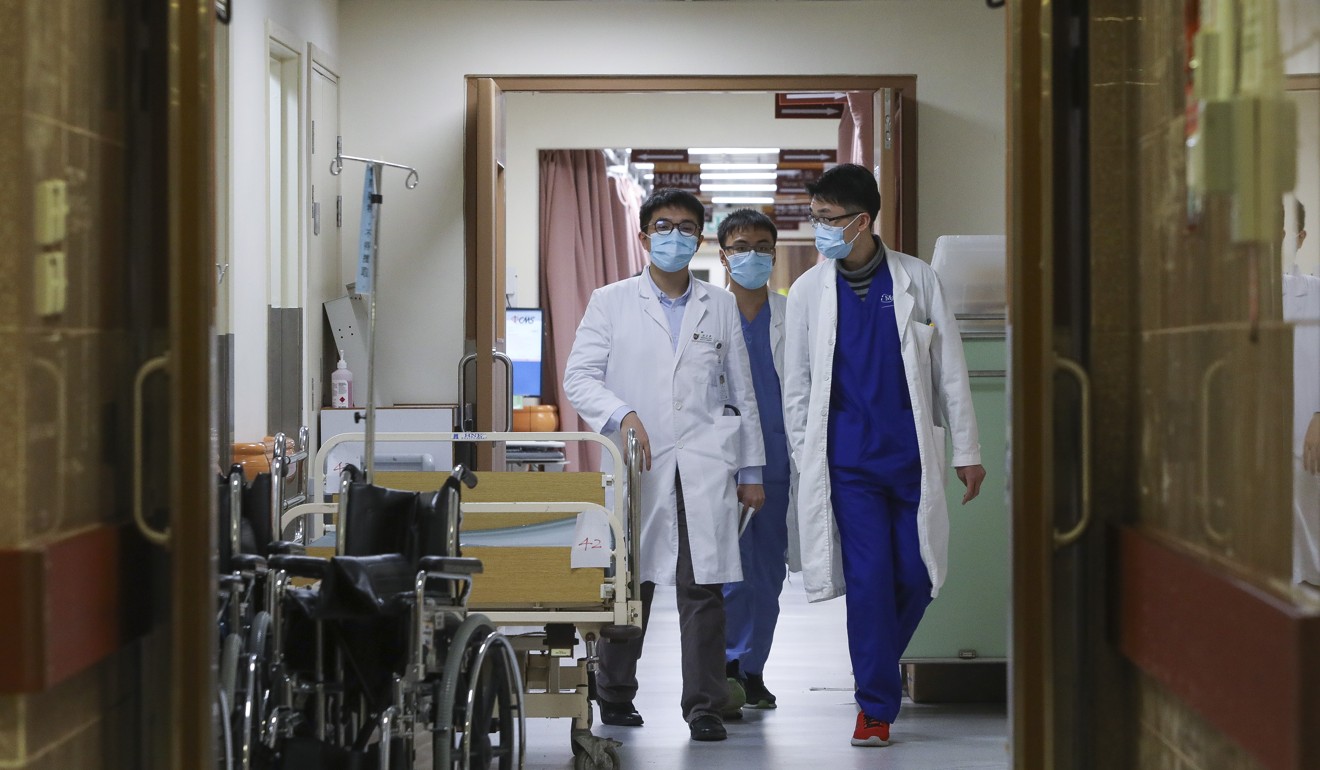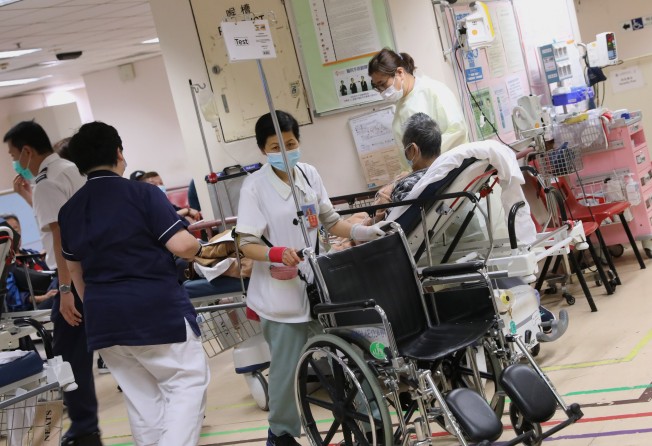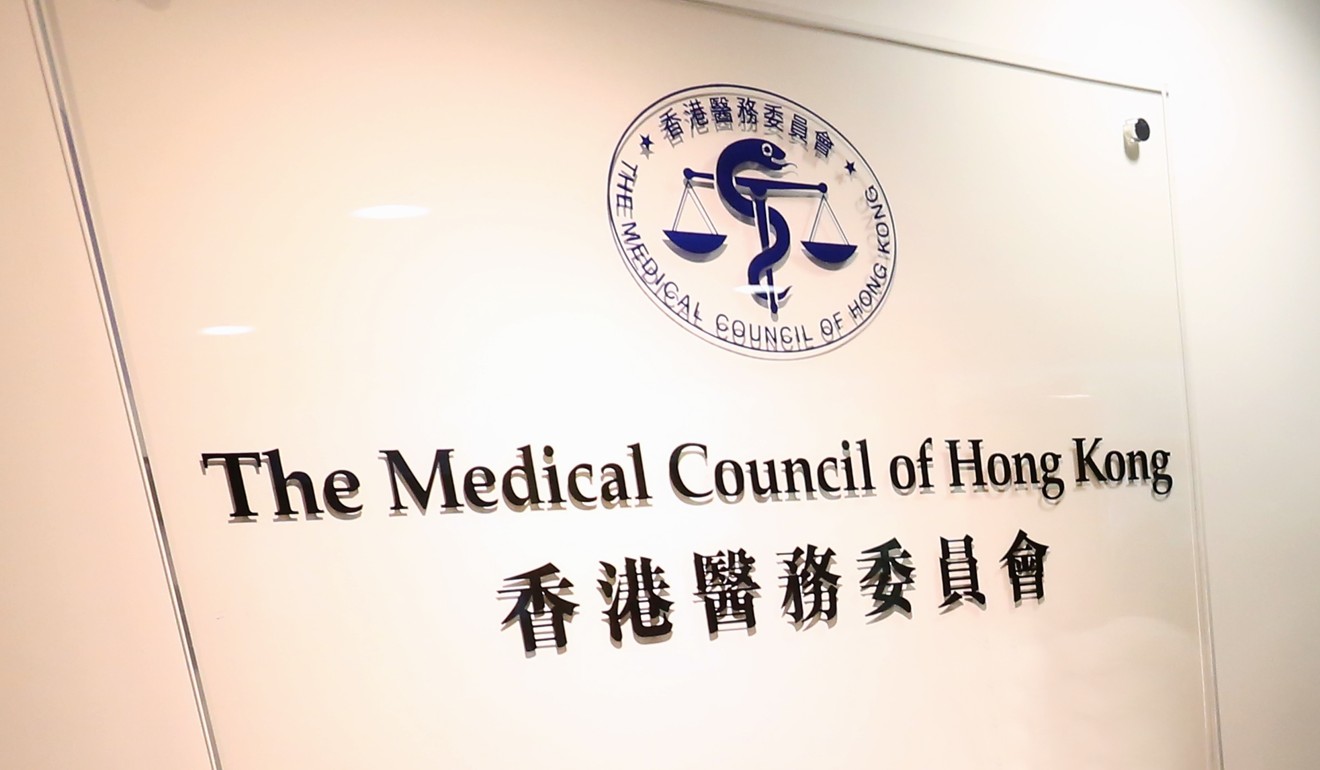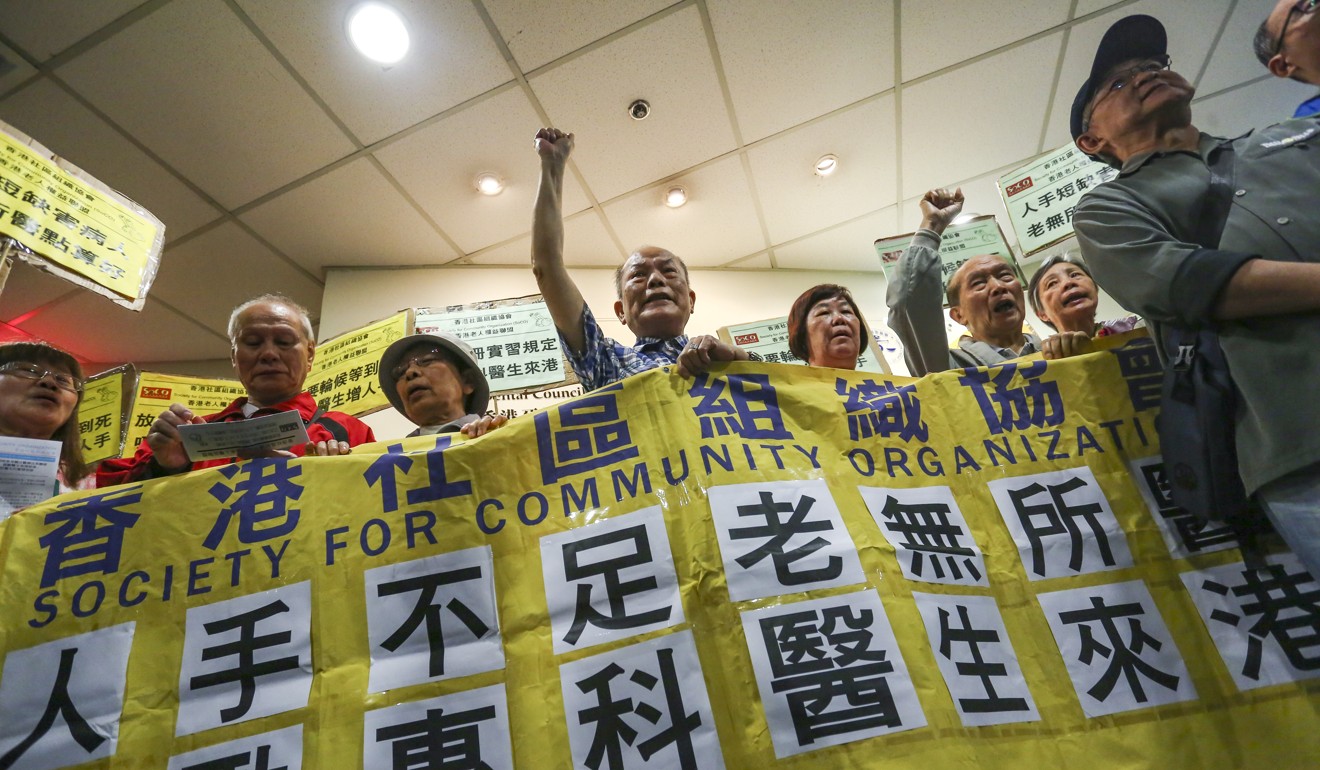
Hong Kong Medical Council signs off on proposal that will make it easier for doctors trained overseas to work in city
- Overseas specialists can be exempted from internship requirements
- But they must have worked in public hospitals or medical schools for three years and passed licensing examination in that time

Hong Kong’s medical regulator signed off on a deal on overseas doctors working in the city after a marathon five-hour meeting on Wednesday, amid allegations by a member that he had been pressured to vote for a proposal reportedly favoured by the government.
The move by the Medical Council clears the way for the easier admission of doctors trained overseas to work in Hong Kong, as the city faces a chronic staff shortage on public hospital wards.
The deal, expected to take effect as early as in a month after the council clears formalities, means overseas specialists can be exempted from internship requirements if they have worked in public hospitals or medical schools in Hong Kong for three years and pass the licensing examination in that time.
The plan passed after council chairman Professor Joseph Lau Wan-yee used his casting vote, making it 17-16.

The proposal, put forward by member Professor Grace Tang Wai-king of the University of Hong Kong, was also considered the easiest path among the three options put to the vote on Wednesday. It was also reportedly the one favoured by the government.
Lau said members had a “long and detailed” discussion. “The decision was not taken lightly. It is firmly in the interests of Hong Kong,” he said.
But council member Alex Lam Chi-yau, of rights group Patients’ Voices, who had put forward his own proposal for voting at the meeting, later claimed he was pressured to vote against his wish.
“I was told [before the meeting] that if I did not support the government’s favoured option, I would face a very ugly defeat,” said Lam, who refused to reveal who pressured him or when.
He said two fellow council members from other patients’ groups did not support his proposal, claiming they were “being manipulated”.
Lam’s proposal, which required overseas doctors to gain clinical experience at public hospitals within a specific period, was eliminated after the first round of voting. His plan only got one vote.

He expressed disappointment with his defeat and said: “Various members do have pre-established stances and do not seem to be willing to listen to other views.”
Lau rejected Lam’s allegations and maintained the voting had been conducted in a proper manner in accordance with the rules. “It is for Lam to substantiate his claims,” the chairman said. “He can also call police if he thinks he was threatened.”
Fellow member Kenny Mui Cheuk-nang, from the patients’ group Care for Your Heart, said he did not feel pressured or manipulated. “Lam’s accusations are unfair to us,” he said.
Another council member, Dr Choi Kin of the Medical Association – the body that represents the local doctors – said he respected the voting outcome.
His association had also put forward a proposal but it was voted down in the second round.
Health secretary Sophia Chan Siu-chee said the government welcomed the passed proposal, describing it as lenient, attractive and fair.

She also denied that the government had pressured Lam.
Chan added that overseas doctors would be treated equally under the Hospital Authority, Department of Health and two medical schools in Hong Kong.
The Frontline Doctors’ Union, meanwhile, doubted whether the new rule would be in the best interests of patients, saying it would be too loose and lax.
The vote followed a council meeting last month in which all four proposals that would make it easier for overseas doctors to practise in Hong Kong were vetoed.
The outcome triggered public criticisms against protectionism and also sparked calls for cutting the council’s power in the vetting of overseas doctors.
The council subsequently agreed to meet again to discuss the issue.
All of the proposals put to the vote on Wednesday, despite some technical differences, sought to remove the internship barrier for specialist doctors trained overseas to allow them to take up positions in Hong Kong after they passed the requirements for service and the licensing examination.
Currently, doctors not trained locally are required to pass the licensing exam administered by the council and to complete a period of internship at public hospitals before they may be registered as medical practitioners. Otherwise, they are under so-called limited registration.
Before the meeting, the Democratic Party and Society for Community Organisation staged separate protests outside the venue.
Democrat lawmaker Helena Wong Pik-wan urged the council to consider further easing the rules to allow Hong Kong graduates from the world’s top 50 medical schools to practise in the city after serving in public hospitals for six years.
Tim Pang Hung-cheong of SoCO called for reforming of the council to include more “outside voices”.
The council has 32 members, only eight of whom are so-called lay members.
Key proposals that have been raised for removing the internship barrier to overseas doctors.
Proposal one:
Specialist doctors trained overseas could be exempt from an internship requirement on condition they have worked for three years at the Hospital Authority, Department of Health or medical school and passed the licensing examination during that time. [Won on Wednesday]
Proposal two:
Specialist doctors trained overseas could be exempt from an internship requirement but they would need to work for three years at the Hospital Authority, Department of Health or a medical school after passing the licensing examination. [Vetoed in April, not put to vote on Wednesday]
Proposal three:
Specialist doctors trained overseas could be exempt from an internship requirement if they have worked at the Hospital Authority for three years and passed the licensing examination during that time. [Vetoed in April, not put to vote on Wednesday]
Proposal four:
Specialist doctors trained overseas could be exempt from an internship requirement but they would need to work for three years at Hospital Authority after passing the licensing examination. [Vetoed in April, not put to vote on Wednesday]
Proposal five:
Specialist doctors trained overseas could be exempt from an internship requirement if they have worked for at least three years at the Hospital Authority, Department of Health and two medical schools, including 18 months of clinical experience obtained after passing the licensing examination. [Vetoed on Wednesday]
Proposal six:
Specialist doctors trained overseas could be exempt from an internship requirement if they have worked in Hong Kong for three years, including at least three months’ clinical experience and passed the licensing examination during the time. [Vetoed on Wednesday]
Additional reporting by Sum Lok-kei